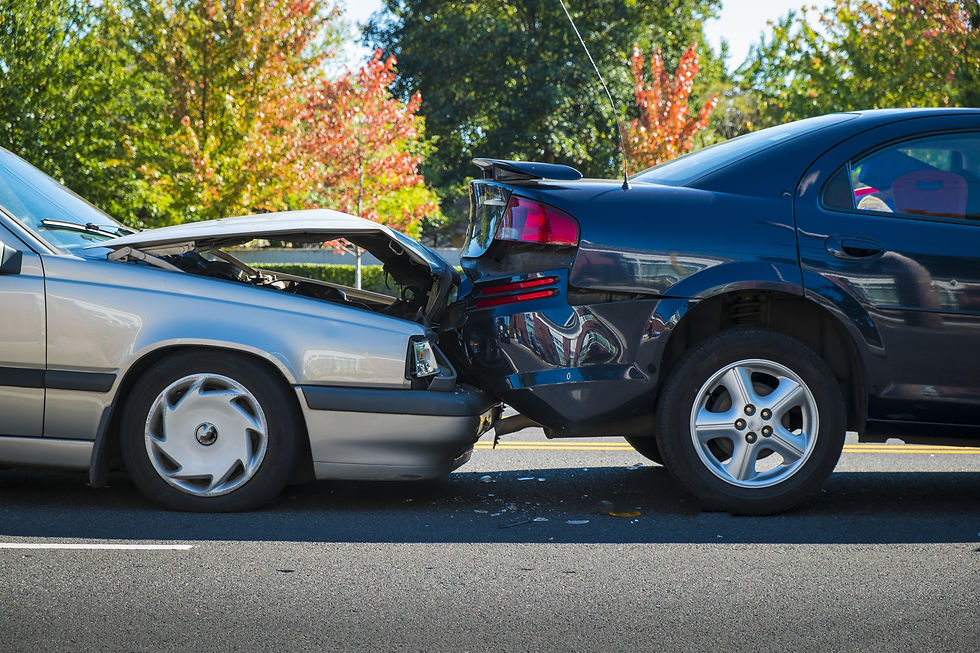Got Your Car Repaired? Here's Our Top 5 Tips to Keep it Like New.
- William Khodr
- May 13, 2024
- 4 min read
After a collision and subsequent repairs, it’s crucial to take good care of your car to ensure it stays in great shape and remains safe to drive. Here’s a simple guide on what to do after your car has been repaired after an accident.
Why Bother with Post-Repair Maintenance?
Post-repair maintenance matters for a few big reasons:
Ensuring Safety: It confirms that your repairs are solid and your car is safe.
Preserving Your Cars Value: Proper care can help maintain your vehicle's resale value, which might otherwise decline after an accident.
Catch Issues Early: Maintenance can spot any hidden issues so they don’t turn into more significant problems.
Understanding Paint & Body Care Post-Repair

The paint on your vehicle doesn't fully cure for about 6 to 8 weeks. During this time, it's more vulnerable to scratches and marks. Here’s how to handle it:
Avoid Harsh Chemicals: For the first week, steer clear of harsh detergents or chemicals on the new paint.
Skip Protective Coatings: Hold off on applying any protective coatings like ceramic or paint protection until the paint has fully cured.
Use Light Waxes: Applying a light wax during the curing period can protect the paint without causing damage.
New paints, sealants, and coatings can emit odours as they cure. Here’s what you might notice:
General Odour: A new smell inside your car is normal and will fade as the materials cure.
Air Conditioning Smell: If there’s a strange odour when you use the A/C, it could be due to contaminants, mould, or bacteria, which are common in systems due to the moisture and temperature they operate in. This might require professional cleaning or even more in-depth A/C service.
Our Top 5 Post-Repair Tips
Post-repair vehicle care isn't just about fixing what's broken; it's about maintaining what's been repaired. To keep your vehicle in top condition, consider these five essential tips:

Pay Attention to How Your Car Drives: You drive your car more than we do, so whilst it’s our job to know more about the technical parts of your car, it always helps when you’re in tune with how your car feels, much like describing symptoms to a doctor. So it’s important to get a feel for your car post repairs and pay a little more attention to how it feels when you’re driving. Sometimes it can feel a little different when you first get it back (like when you drive a car that is not your own), once you settle back in let your repairer know if anything feels out of place.
Tire Checks: Ensure your tires are properly inflated and aligned. Misalignment can occur after an accident, leading to uneven tire wear and other handling issues.
Alignment and Suspension: Have your alignment and suspension checked as a part of your service routine. Even small accidents can throw off your vehicle’s suspension and alignment, which affects handling and safety.
Reset Your Car’s Settings: Ensure all your personal settings are reset which includes your seat position, mirrors, locks & child locks, window operation and seat belt positions.
Detailing and Cleaning: Thoroughly clean and detail your vehicle. Keep your vehicle clean and don’t allow dirt, leaves, grime to build up in any areas. This not only maintains its appearance but can also prevent issues like rust or corrosion on parts of the vehicle that have been repaired.

It’s also important to note that when a vehicle is repaired it is usually clean and shiny, which can make already existing imperfections more obvious than they would have originally been. This means some scratches and dents may be more obvious than they were before. Don’t stress, if they are bothering you get in touch with your repairer and let them know.
What You Can Do Daily To Maintain Your Vehicle Repairs
For the best care of your newly repaired vehicle, consider these practical tips:

Avoid Parking Under Trees: Sap and bird droppings can damage fresh paint.
Stay Out of the Sun: Prolonged exposure to the sun can fade new paint. Whenever possible, park in shaded or covered areas.
Hand Wash Your Car: Avoid automatic car washes for the first few months, the brushes and strong chemicals can harm new paint. Wash your car by hand with a gentle car washing solution & soft cloth or sponge with cool water (not hot).
Soft Cleaning Only: Don’t dry wipe your car. Always use water and a soft cloth to avoid scratches.
Dry Your Car Thoroughly: do not let water marks dry on the fresh paint as it may leave permanent marks.
What to Avoid After Vehicle Body Repairs
Post repair, there are a few things that can help with the longevity of those repairs:
Avoid Harsh Conditions: Keep your car out of mud, snow and heavy rain (excessive moisture), especially soon after paint and bodywork.
Skip the DIY Fixes: Do not try to fix any new problems yourself. Always consult with a professional to maintain warranty and ensure quality.
By following these guidelines, you can help ensure that your vehicle remains safe, performs well, and retains its value long after the repairs are done. Remember, the goal of post-collision maintenance isn't just about keeping your vehicle running; it's about keeping it running safely and efficiently.
Need a Check Up?
If you're unsure about your repairs or just want to be safe, come see us. Book an inspection and we’ll help to make sure everything’s in top shape.


Comments